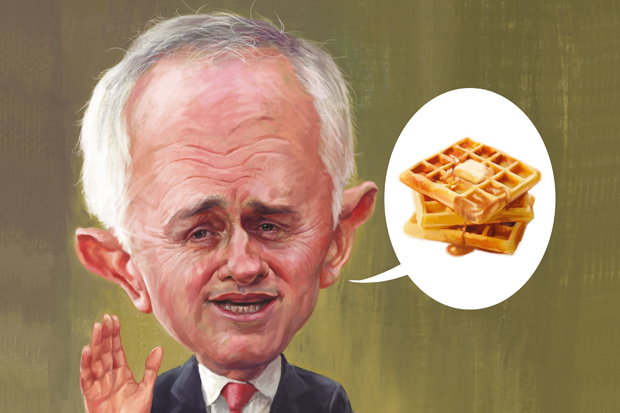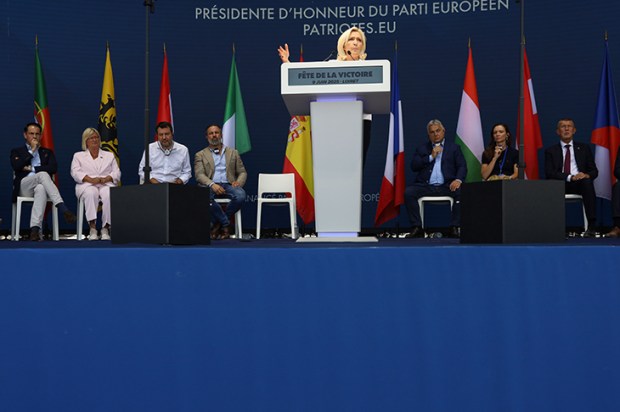Pistol and Boo Boo are living proof that it is not just those who come illegally by boat to Australia that will be turned away. Our borders are just as fierce when it comes to dodgy doggy smugglers and the use of private jets. Whilst the duo were able to evade any appearance on Channel Seven’s Border Security: Australia’s Front Line, their short legs could not run for ever from Australian Quarantine and Inspection.
Hot on their heels was the Pirate himself and owner of the handbag sized canines, actor Johnny Depp. Hardly a moment had passed after his dogs obeyed the command of Senator Barnaby Joyce and ‘buggered off back to the United States,’ when Johnny made his own departure from his current film set.
It is hard to know which was more concerning – that the coiffured canines were returned home on a private jet or the possibility that Mr Depp’s view of himself meant that he did not feel that he was subject to Australian biosecurity laws when he arrived in the country.
A divorce from reality seems to go hand in hand with many of today’s celebrities. For Depp most of his characters (nonetheless interestingly portrayed) hardly encourage a connection to the real world: the Mad Hatter; the Big Bad Wolf; Willie Wonka and Captain Jack Sparrow to name just some.
Perhaps all of this goes to show that a sense of ‘entitlement’ is a gift which is evenly distributed. Although there are people who would say that the entitlement culture is seen at its strongest in the welfare system.
Nobility porn, under the guise of Downton Abbey, would be my choice of viewing over what was recently described as the ‘poverty porn’ of SBS’s series Struggle Street. This followed the lives of some of the inhabitants of Mount Druitt in NSW and was seen by various commentators as highlighting an entitlement culture.
It was probably only the concocted outrage which caused me to want to watch it. Having seen all three episodes what I found was not the voyeuristic orgy which had been promised, but instead a fairly blunt and at times realistic portrayal of both dysfunctional families and communities. Such an image of reality is not limited to postcode 2770 but is repeated in so many different towns and cities, often passed off by other locals as being the problem which is on ‘the other side of the tracks.’
Even before the show appeared on air there was an indignant mob who, on viewing the trailer, trashed the entire series. Contrary to their protestations Struggle Street did in fact cover those who were trying to improve their community and lives. Two shining lights in the series came from the younger generation. There was the single mum Erin who appeared in the first episode and, having lived the reality as well as witnessed the needs of her community, aspired to work as a youth refuge worker. Also featured was 24 year old Tristan with a brain injury, following a motorcycle accident, who expressed no sense of entitlement to benefits but wanted the normality and dignity of work.
SBS Managing Director Michael Ebid was quite right when, in a recent Senate estimates hearing, he laid much of the blame for the backlash to Struggle Street at the feet of Stephen Bali, Mayor of Blacktown. Bali, in a media frenzy, had stormed SBS Sydney offices with his troops of publicly funded rubbish trucks. The Labor Mayor, even before the show had been aired, vented his anger and said ‘how dare they pick out a few people and treat them with complete contempt, actually have unethical practices, engineered scenes that are not true, that are completely false … This is absolute crap.’ It took a while for me to realise that he was speaking about Struggle Street and not his own self-promoting publicity stunt.
The Mexican wave of indignation made it to Channel Nine’s A Current Affair. Tracy Grimshaw, with no visible sense of double standards, described it as a ‘cruel TV attack on a proud community.’ She could easily have been speaking about a similar British series which would soon air on Nine, Britain on Benefits: Life on the dole. Now in its second UK season Channel Nine almost fell over itself as they rushed to show it in the very same time slot which the SBS show had previously filled.
Any horror that there may have been over the content of Struggle Street pales into insignificance when it is placed alongside this British version. It is a presentation of a Britain which could easily lead to mild mannered middle England foraging for their ‘how to vote Farage’ cards.
The series portrays a few families as little more than baby benefit farmers. Each child bringing with it a new harvest of State payments. 64 year old Peter Rolfe (father to 26 children by 15 different women) was not slow to share his insight and knowledge of the system as a new generation of children was being born and added to the handout list. Heather, mother of 11, had been vilified in the press for the £500,000 home being built for her. She placed the blame clearly at the feet of the Council as it was not her choice for the council to build a new house. ‘No one’s put a gun to their f***ing heads.”
Episode five focused on the Roma gypsies entering Britain hot on the heels of work restrictions in the UK being lifted for Romanians. Without a hint of guilt one such traveller expressed how easy it was to get benefits in Britain which would allow him to fulfil his ambition of raising £40,000 from benefits which would be sent home to renovate his house.
But prize for ‘mother of the year’ must go to June in episode six. Instead of encouraging her daughter, who was attempting to find work and get out of the benefits system, she argued with her. With increasing anger she made it known what benefits would be lost if the girl went to work. In exasperation June turned to the camera to tell us that by being in the workforce her daughter was ‘not gaining. At the end of the month she would be lucky if she has a hundred quid to her name.’
As Johnny Depp and Life on the dole are proof, a sense of entitlement is not restricted to any one sector of society. Perhaps one glimpse of hope is that on Struggle Street there are at least a couple of people who are trying to improve their world.
Got something to add? Join the discussion and comment below.
You might disagree with half of it, but you’ll enjoy reading all of it. Try your first month for free, then just $2 a week for the remainder of your first year.










